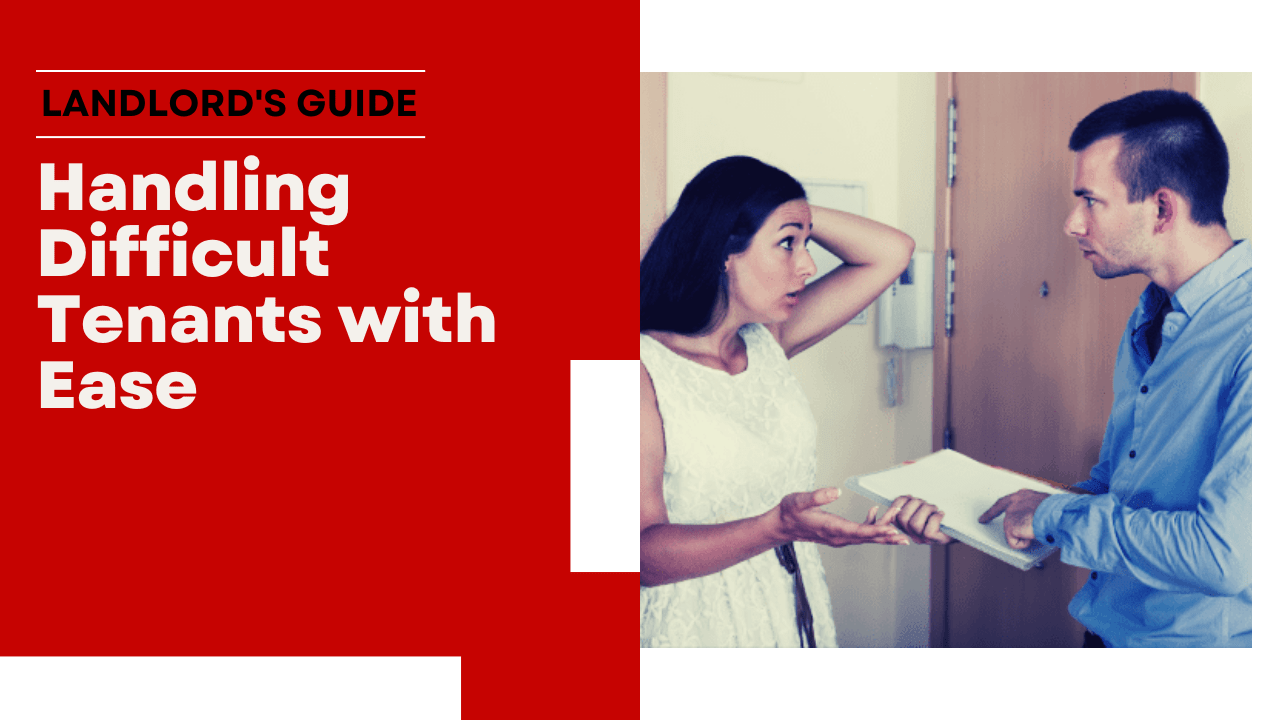Handling difficult tenants can be a monumental task, especially if you are a landlord managing multiple rentals. It can be challenging to handle a million different tenant requests simultaneously without delay. Even if a couple of difficult renters occupy your rentals, they can make your job as a landlord a lot more challenging. They may delay their rent payment, act carelessly, cause property damage or make unreasonable and unrealistic requests.
An experienced Norfolk landlord can easily handle such situations. However, such behavior can be exhausting and stressful for an inexperienced property owner. So, while it is wise to avoid conflict with renters and take a peaceful approach, there are occurrences when an argument is inevitable.
Here is how you can handle difficult tenants with ease as a landlord –
Handling Difficult Tenants Before Conflict
You can start dealing with difficult renters right at the start of the tenancy by implementing measures to avoid conflict. Here are a few steps to handle such occupants before a conflict occurs -
Screen Prospective Tenants
One of the best ways to ensure that you prevent a conflict with a difficult tenant before it occurs is by conducting a thorough screening. Screening procedures often involve conducting strict background checks and contacting references. These steps can help you realize which of your applicants can potentially be problematic.
Often, renters have a history of being difficult, and their bad behavior can be detected early by talking to their previous landlords. You can avoid getting such tenants in your rental by implementing a rigorous screening procedure that adheres to Virginia's tenant screening laws.
Set Clear Rules and Policies
Another great way to handle tenants before any conflict occurs is by establishing rules for your property in the early stages of the tenancy, preferably before signing the lease. It is also essential to include all these policies in a well-drafted, comprehensive lease agreement. Once the renter signs this lease, they are legally required to follow the terms of the lease. Additionally, you can also be upfront with the tenant about your actions in case of untimely or delayed rent payment, their obligations, responsibilities, and details of the damage.
You can add more clauses and make your lease detailed. The more clearly your lease describes the rules and obligations of the lessee, the more efficiently you can handle any trouble that your renter causes. However, ensure that you follow the guidelines as per the Virginia Residential Landlord and Tenant Act.
Keep Written Records
There is a risk of potential legal issues arising during any tenancy if your difficult tenant denies that you did your duties as a landlord. Therefore, it is essential to keep notes of every interaction with your tenants. You can also summarize any in-person meetings and keep a copy of the transcripts or meeting details with you. You also need to record financial transactions, maintenance issues, emails, phone calls, and other communication between you and the tenant.
If your tenant denies that you resolved their rental-related problems, you can produce these records and prove them wrong by showing your attempts to resolve the issue and your back and forth with the tenant.
Offer Benefits
Even though you are the landlord and are in the right, you have to take an alternate approach while dealing with your difficult tenants. Taking an aggressive approach and ensuring that your tenant knows what they are doing wrong outright is the traditional approach that may sometimes work. However, more often than not, this causes the tenant to be vengeful. Therefore, as a landlord, you can make consistent efforts to get the tenant on your side.
You can do this by offering your tenants various incentives and benefits. You can also try to be kind to them and be patient with their reasons. It is possible to win over a difficult tenant using this strategy in some cases. Once you assure the tenant that you will reward their good behavior, they will try to make an effort to bring positive changes to their behavior.
Build a Good Rapport with the Clients
The relationship between a landlord and tenant has to be professional and filled with mutual respect and understanding. However, this relationship is complex and is often the subject of disputes and litigation. If you, as the owner, know that your renter is problematic, you need to make extra efforts to keep the relationship cordial. It may require a lot of patience on your end, but it will also protect you from facing tenancy-related legal issues in the future.
Handling Difficult Tenants After Conflict
In case a conflict occurs between you and your renter, here are all the different ways you can deal with the situation -
Communicate and Resolve Issues
People say that it is possible to resolve all problems by communicating. As a landlord, you have to maintain professionalism even while dealing with a difficult tenant. If an issue arises, you need to communicate transparently with them and find the root of the problem. Only after that can you solve the problem without having it escalate into a big fight between you and the tenants.
It is very easy to get angry when your occupant is causing you trouble and problems. However, such a mindset will only make things worse for you. You need to evaluate the situation calmly and rationally. It would help if you also established trust and transparency with your tenant.
Ask the Tenant To Leave
Even after you follow all the steps mentioned above and avoid engaging in conflict, there is no guarantee that trouble will not arise between you and your tenant. Some of them are just hard to deal with and stubborn without reason. If your issues with the tenant are not getting resolved after repeated changes in strategy, or if they are not showing any signs of a positive difference and are causing more harm to your business, you can consider asking the tenant to move out.
Keep in mind that these occupants may not necessarily leave the rental right away in peace. Assume that getting them to leave voluntarily will be a problem, and take the next steps accordingly.
You can send the renter a Virginia Eviction Notice and give them 30 days to vacate the rental premises as required by the law. Ensure that you specify the date when the tenancy will officially be ended. Since Virginia is a landlord-friendly state, getting your tenant to move out of your rental can be relatively easy.
Settle Things Legally
If your bad tenant does not move out voluntarily, you have no option but to settle things legally and file for an eviction. The eviction process is often hectic and costly, but it is a good option as a last resort, especially if your tenant is needlessly difficult. However, make sure you follow the proper Virginia eviction process. You cannot simply evict your tenant without a reasonable cause. You need to have a legal reason to do so, like failure to pay rent, lease violation, committing illegal acts on the property premises, etc.
However, if you do not have a legal cause, you may have to wait until the term of the tenancy expires. You will be required to send a notice for this circumstance as well. You also need to understand that you cannot just kick your renter out even if they breach the lease term.
You have to follow the proper legal procedures according to Virginia law and ensure that they get evicted legally. Never use force or any unnecessary interference to remove the renter. You can avoid the potential threat of getting sued by your tenant by following the law and the eviction process.
Hire a Property Manager
Handling difficult tenants on your own can be a challenge, especially if you are a new landlord. No matter how much you try to avoid conflict and deliver on their demands, problematic occupants have a way of escalating situations and causing trouble. Therefore, you may need someone in your corner to ensure that your tenant follows all the rules mentioned in the lease.
A qualified Norfolk property manager can be your best bet as they can handle such tenants for you without much hassle. Due to their years of experience managing properties, they can efficiently handle such renters.
 These managers also have strong legal teams they can consult for processes like evictions and regarding other issues that the occupant causes. Choosing the right property manager can help you eliminate a lot of stress related to your rental business and can ultimately be worth the investment.
These managers also have strong legal teams they can consult for processes like evictions and regarding other issues that the occupant causes. Choosing the right property manager can help you eliminate a lot of stress related to your rental business and can ultimately be worth the investment.
Doud Realty Services provides highly effective management services to our landlord clients. We market properties, conduct extensive screening, collect rent, and conduct maintenance and financial reporting. We also provide eviction protection and shield you from the taxing implications of evicting a renter. Our team of professionals can take over your duties with zeal and handle all tenants in your rentals.
If you need any assistance, connect with us at Doud Realty Services.


